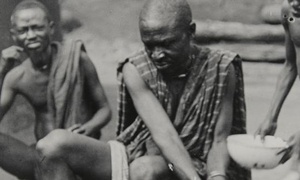<p><strong>The Tongue That Closed the Door 😥👅</strong></p><p><br/></p><p>In the bustling city of Yaoundé, Cameroon, a bright young man named Tsəʼəfò Brian had just graduated with honors in International Relations. He was sharp, well-dressed, and fluent in English and French. His dream was to serve his country on a global stage — perhaps as a diplomat, or better still, in one of the prestigious embassies in Africa or abroad.</p><p>One day, an announcement came from the Ministry of Foreign Affairs: a rare internship opportunity had opened at the Cameroonian Embassy in South Africa. Hundreds applied, but only ten were shortlisted. Tsəʼəfò was among them.</p><p>On the day of the interview, he arrived early, dressed in a navy-blue suit, clutching a brown folder that held his certificates, recommendations, and identity documents. The panel of interviewers included two government officials, an elder from the National Language Council, and a woman from the Ministry of Culture.</p><p>After several formal questions about diplomacy, global politics, and international law, the panel chair leaned forward and asked,</p><p> "Young man, you’re from the North West Region, right? Can you briefly introduce yourself in your mother tongue?"</p><p>Tsəʼəfò’s heart froze.</p><p>He stammered, “Uh... I... I understand Nkwen, sir, but I— I don’t speak it very well.”</p><p>The elder smiled gently and said,</p><p>“Just greet us and tell us who you are. It doesn’t have to be perfect.”</p><p>But Tsəʼəfò (Chefor) could barely remember anything. His parents had spoken to him in Nkwen growing up, but he had always answered in English. He had thought it old-fashioned and unnecessary. At best, he could remember a few greetings, but not how to form a complete sentence.</p><p>He tried:</p><p>“A...a ndɛ... uh, Mbia... M... mba eh...”</p><p>He looked down in embarrassment. 😞His voice cracked. 😥The room fell silent.</p><p>The woman from the Ministry of Culture softly added,</p><p>“This internship includes cultural exchange programs. We expect you to represent Cameroon not just through English or French, but through your roots — your language, your identity.”</p><p>Tsəʼəfò nodded, ashamed.</p><p>The interview ended politely, but he already knew the outcome.</p><p>A week later, he received the email. 📩</p><p> “We regret to inform you that you were not selected. We encourage you to continue growing in both international knowledge and national identity.”</p><p>That day, Tsəʼəfò sat by himself and wept. Not because he had failed, but because he realized how much of himself he had lost in trying to become someone else.</p><p>From that day, he began attending local language workshops in Nkwen. He joined storytelling circles, listened to elders, and practiced every day. Not because of another job, but because he never wanted to be a stranger to his own tongue again.</p><p><br/></p><p>Moral of the Story:👂📝</p><p>Language is not just communication — it is identity, culture, and belonging. In a world that values global awareness, never forget the value of your mother tongue.</p><p><br/></p><p> © Chefor Eugene T</p><p> @ PC Nkwen language committee</p><p> # Valorize your mother tongue today!</p>




Comments